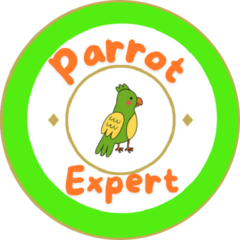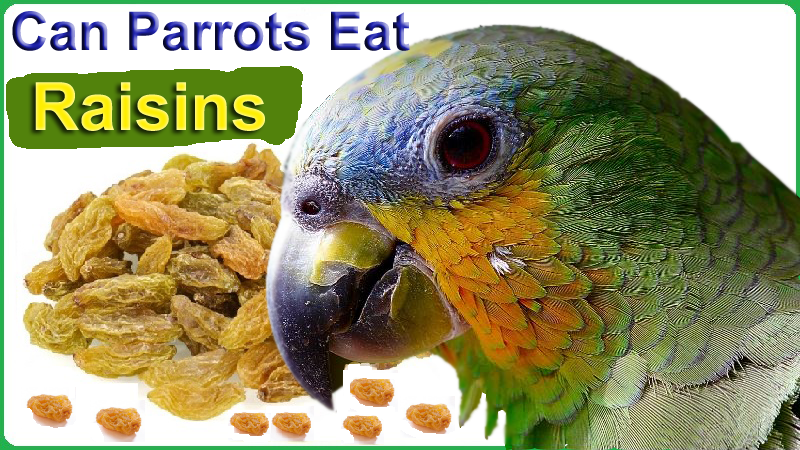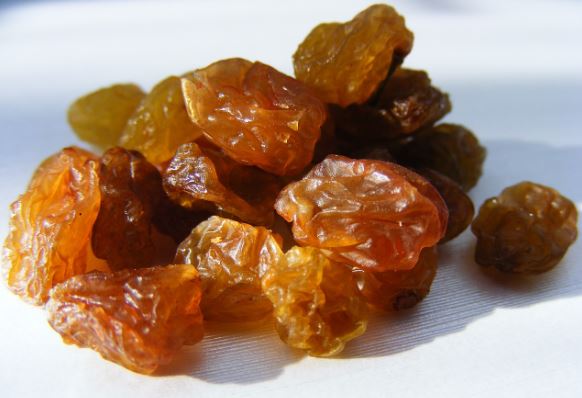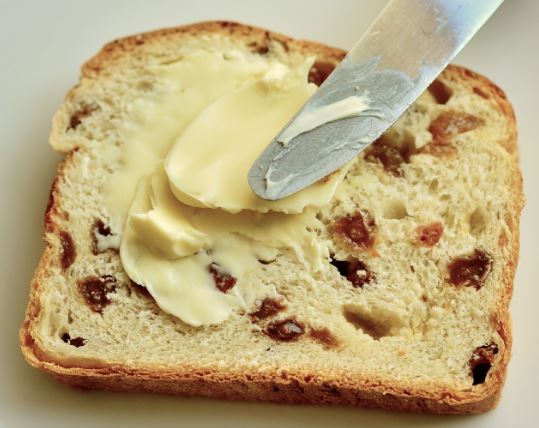In the world of humans, raisins can be considering divisive food stuff. Someone loves them, but some people hate them. Some like them on individually, but not as a part of other food. So, you can look it that raisins are controversial. But what about raisins for parrots to eat? Can parrots eat raisins? Is it safe food for their health? Today, we will answer of all these questions.
You answer is quickly, yes! Your parrot can safely have raisins as long as you feed them in moderation. Its feeding frequency about 2/3 times a week is an acceptable. Raisins serve numerous elements that are necessary for a healthy parrot.
Through this article, we will also give some essential tips on how you can make raisins a healthy and enjoyable treat for parrot to eat. If, till now you are wondering about whether or not raisins are a good choice for your parrot, then reading on!
What Are about Raisins?
Raisins make after drying the grapes that are a best source of natural sugars, dietary fiber, vitamins, and minerals. They serve the instant energy cause of their high sugar content, and support to digestive health with their fiber content.
Raisins are packed with antioxidants like polyphenols that help to combat oxidative stress. Their high sugar content makes moderation essential to avoid obesity and other health issues in parrots.
Always choose organic raisins that free from mold and contaminants. Ensures they are a safe occasional treat that offering nutritional benefits when include in balanced diet for parrots.
Are Raisins Safe for Parrots to Eat?
Generally, raisins can be considering as safe for parrots to eat in moderation. They employ much beneficial nutrition to parrots such as natural sugars, dietary fiber for digestion, and essential vitamins and minerals.
But, due to high sugar content, they can get obesity and other health issues if consumed too much. Should safely include raisins in a parrot’s diet, but they should be given as occasional treats rather than a staple food.
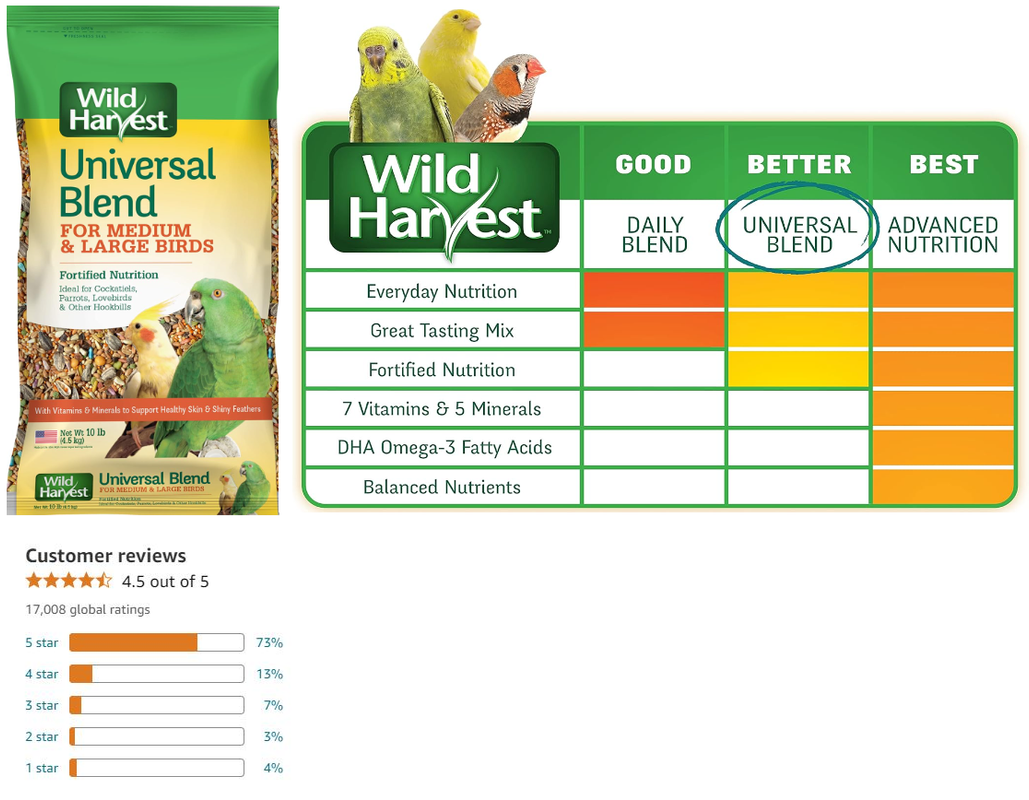
Prevent choking hazards to chop raisins into smaller pieces, especially for smaller-sized parrot species. As possible as, choose organic raisins to avoid pesticide residues and inspect them for mold that can be toxic.
Raisins Offer Health Benefits to Parrots
Here are some essential health benefits raisins offer parrots:
Also Read: Can Parrots Eat Pistachio Nuts? Health Benefits and Risks
Nutrient-Rich: Raisins contain essential vitamins and minerals.
- Potassium: Supports heart and muscle function.
- Calcium: Important for bone health.
Iron: Essential for blood health and oxygen transport.
Energy Boost: Natural sugars in raisins provide quick energy, beneficial during active periods.
Digestive Health: High dietary fiber content aids digestion and maintain a healthy gut.
Antioxidant Properties: Polyphenols and other antioxidants reduce oxidative stress, and supporting the immune system.
Mental Stimulation: Using raisins in foraging activities provides mental enrichment.
Hydration Support: Raisins retain some moisture, contributing to hydration.
Natural Sweetness: A healthy alternative to artificial treats, satisfying parrots’ sweet cravings without harmful additives.
Skin and Feather Health: Nutrients in raisins promote healthier skin and more vibrant feathers.
Negative Effects of Adding Raisins in Parrot’s Diet
Shown above, various health benefits for your parrots. But, there are also several potential negative effects to be aware of:
Also Read: Can Parrots Eat Cinnamon? Dietary Do’s and Don’t
High Sugar Content
Obesity: Raisins are in rich natural sugar that leads to weight gain, putting strain on a parrot’s organs, then increasing the level of obesity-related health problems.
Diabetes: Regularly, consuming high sugar can disrupt insulin regulation, and raising the risk of diabetes.
Risk of Overeating
Diet Imbalance: Parrots may intake raisins too much due to their sweetness, then lead to a diet imbalance and can neglect of other essential foods.
Selective Eating: Giving to prefer for raisins, parrots can refuse other crucial dietary components.
Choking Hazard
Physical Size: Smaller parrots can get choke on whole raisins, so be careful chopping to manageable pieces.
Mold and Contaminants
Mycotoxins: Raisins can harbor mold that produce harmful mycotoxins. So, it can get damage parrot’s liver.
Pesticide Residues: Non-organic raisins may consist pesticides that leading to toxicity for parrot’s health.
Gastrointestinal Issues
Diarrhea: High sugar can cause diarrhea, can arise dehydration and electrolyte imbalance.
Fermentation: Excess sugar can ferment in the gut that can cause of bloating and discomfort.
How Often Can You Feed Raisins to Parrots?
You should not add raisins more than 10% of a parrot’s total food intake. Otherwise, your parrots can get many health issues like hyperactivity, weight gain, and digestive problems if over-consumed.
Also Read: Can Parrots Eat Cucumber? Answers for Parrot Owners
Give raisins to parrots 1-2 times per week at most. Smaller parrots may only need 1-2 raisin pieces per treat, but larger parrots can have 3-4 pieces.
Always break raisins into smaller pieces to prevent choking problem, especially for smaller-sized parrot species. Soaking raisins in water can also help soften them.
Always monitor your parrot closely after giving raisins and discontinue feeding if any adverse effects are shown.
Can Parrot Have Raisin Toasts?
Parrots can have raisin toast as occasionally, but with caution. The bread should be whole grain, but free from added sugars, salt, or artificial ingredients.
Always, avoid using butter, oils, or spreads. You can offer toast, but should be given in small and manageable pieces.
Keep remember, raisins in the toast are organic and free from mold or contaminants.
Since bread is not a natural food for parrots and can be high in carbohydrates. So, it should be an occasional treat rather than a regular part of their diet.
Always observe your parrot for any adverse reactions when introducing raisin toasts.
Do Baby Parrots Eat Raisins?
Generally, Baby parrots should not be fed raisins. Here’s why:
Also Read: Can Parrots Eat Blueberries? What You Need to Know
Raisins are high in sugar, which can be problematic for young parrots with developing digestive systems.
Raisins pose a choking hazard for baby parrots, whose beaks and throats are still quite small. Whole raisins could get stuck and obstruct their airway.
Baby parrots have different nutritional needs compared to adult parrots. Their diet should focus on specialized hand-feeding formulas and soft, easily digestible foods to support their rapid growth and development.
How Do You Feed Raisins to Your Parrot?
Feeding raisins to your parrot requires careful consideration to ensure their safety and enjoyment:
Moderation: Offer raisins as an occasional treat, not a staple part of their diet.
Preparation: Chop raisins into small, manageable pieces to prevent choking, especially for smaller parrots.
Quality: Choose organic raisins to avoid pesticide residues and inspect them for mold or contaminants before feeding.
Introducing: Start with a small amount to gauge your parrot’s reaction. Monitor for any digestive issues or behavioral changes.
Variety: Incorporate raisins into foraging toys or as rewards during training sessions to provide mental stimulation.
Balance: Maintain a balanced diet with a variety of fruits, vegetables, seeds, and pellets to ensure overall nutritional needs are met.
Alternatives to Raisins for Parrots
Here are some alternatives to raisins, which can be offered to parrots:
- Almonds
- Walnuts
- Pecans
- Brazil Nuts
- Pumpkin Seeds
- Sunflower Seeds
The Final Lines
In the finally, raisins come in safe and enjoyable food to feed your parrot, if it in moderation.
The main responsibility of parrot owner is to offer raisins as their balanced diet and varied, including a mix of seeds, nuts, fresh fruits, and vegetables.
Do you have any experience, tips, tricks, or query regarding on this? You can drop a comment!
Have a Nice Day!!
